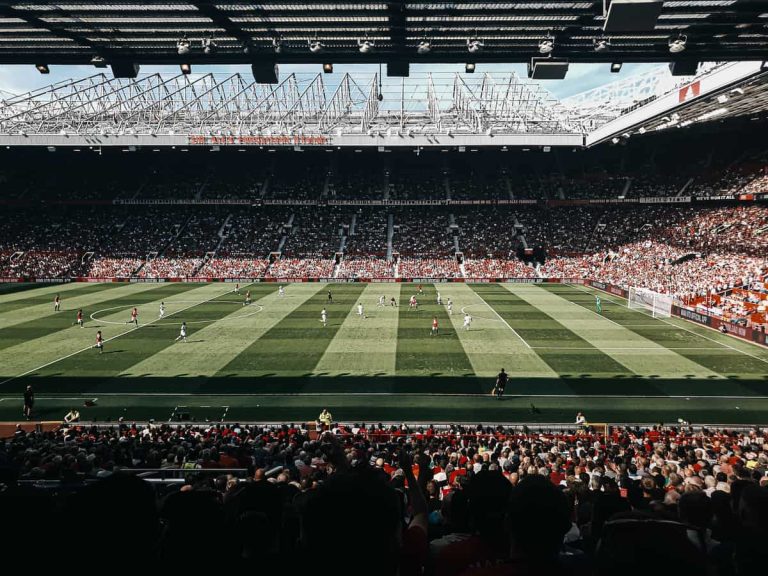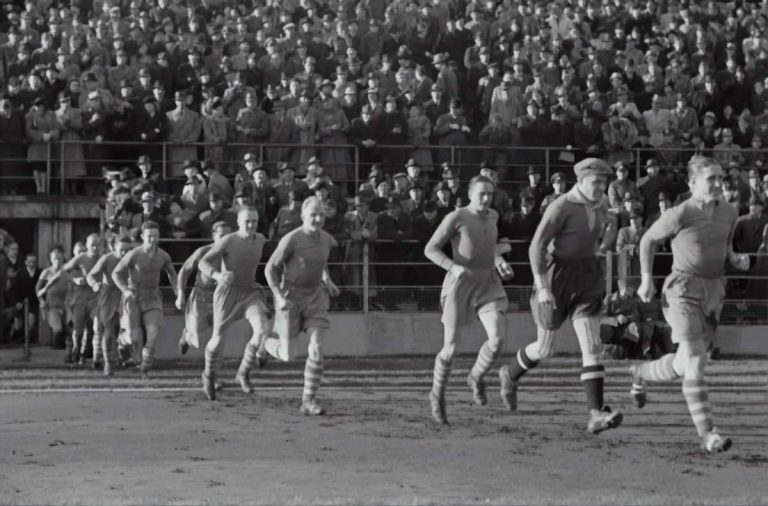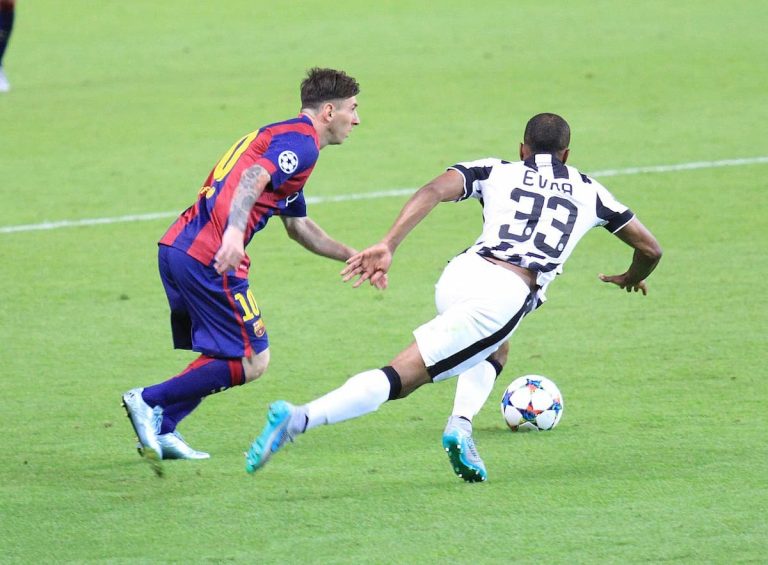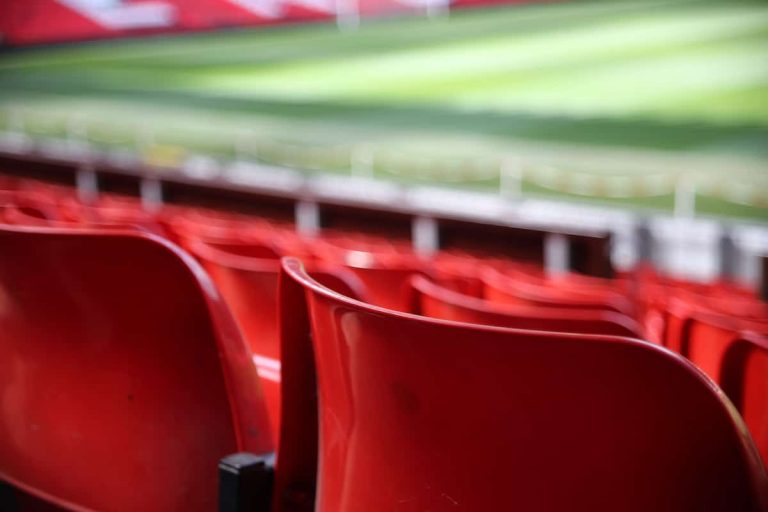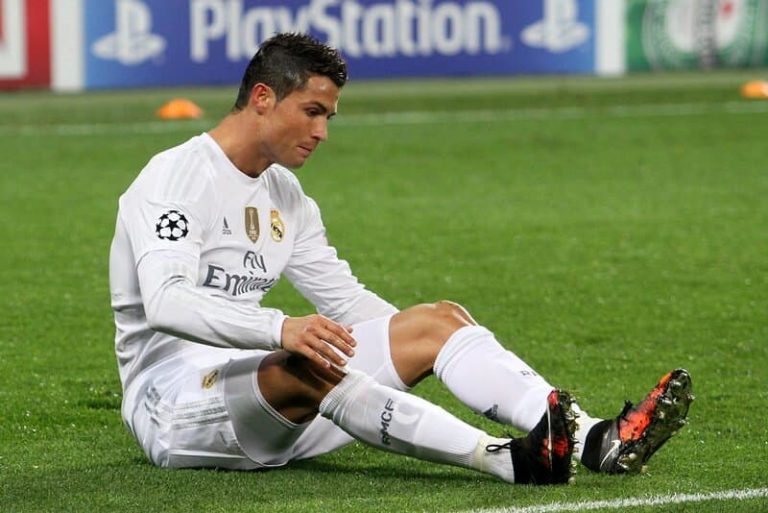What Age Do Footballers Enter Their Prime?

Table of Contents
What Age Do Footballers Enter Their Prime?
The age at which footballers enter their prime is highly dependent on the position that they play on the pitch. For example, it’s possible for a goalkeeper to enter their prime a lot later than a forward player. This is because different positions require different skill sets, and these can be hindered by age.
What Factors Affect a Footballer’s Performance?
There are a wide range of factors that affect a footballer’s performance, and these need to be considered when discussing footballers in their prime.
Speed
One of the main factors that’s discussed regarding a player’s performance is their speed. If a player starts becoming slower, they might not be able to perform at the highest levels any more. In the modern game, it’s really important for defenders to have sufficient speed when playing in the top flight against quick forwards.
Slow centre halves can find it incredibly difficult playing against fast, young, pressing forwards. Furthermore, opposition teams are likely to target that weakness by playing balls over the top.
Another analysis would be that wingers or forward players might stop taking on opposition players because they aren’t quick enough as they get older. When wingers enter their early thirties, it’s unlikely that they’ll be able to offer as much of a threat in one-on-one situations.
Agility
Agility is linked closely to speed, with many players requiring a good level of agility to allow them to play at the top of their game. As players become older, they will become less agile. For a central midfielder, a number 10 or a false 9, agility is key and this can hinder their ability and affect the age that they enter their prime.
Strength
Another factor that affects a player’s performance and the age they enter their prime is strength. For example, explosive, hold up strikers like prime Emile Heskey will rely on their strength to produce their best performances.
Over time, there’s a chance players can become weaker, and this can affect the age in which they enter their prime. It’s more likely they’ll enter their prime earlier on in their careers if this is the case.
Number of Minutes
Arguably the most important factor that affects a player’s performance is the number of minutes they have on the pitch in competitive games. Depending on the team that they play for, player’s may need to wait a number of years to break into the first team squad. This can potentially push back the age when they enter their prime.
The number of minutes a player plays can sometimes represent when they become prime footballers.
Prime Ages for Footballers Based on Position
When Do Goalkeepers Enter Their Prime?
Goalkeepers are unique when discussing the prime age for footballers. Due to the nature of playing in goal, i.e. being stationary for extended periods of play, goalkeepers regularly have the longest careers out of all positions on a football field. Goalkeepers can enter their prime anywhere from the ages of 24 to 35.
So when do goalkeepers enter their prime? Well, this can vary on a case by case basis. Some goalkeepers will have “purple patches” early on in their careers, meanwhile others might come into their own later on in their careers.
Take, Gianluigi Donnarumma, for example. The Italian goalkeeper is arguably one of the best on the planet and is only 23 years old. With goalkeepers regularly playing into their late thirties, he has a long career ahead of him and is already playing at a really high level. He may already be in his prime, especially after being a fundamental part of the Italian Euros winning team in 2021.
Furthermore, English goalkeeper Joe Hart had one of his most successful spells early on in his career. He made his league debut for Manchester City at the age of 19 under manager Sven Goran Eriksen who claimed that Hart was “one of the biggest talents in this country as a goalkeeper“. He is still playing regularly at the age of 35, currently playing for Scottish champions Celtic. It’s safe to say that Hart entered his prime earlier on in his career.
To conclude, there is no set age when a goalkeeper enters their prime, it’s best to look at this on a case by case basis.
When Do Defenders Enter Their Prime?
Defenders tend to have the second-longest careers out of all positions on a football pitch. Defenders tend to enter their prime between the ages of 23 and 32, with 27 and 28 often being the best years for them.
The demands of different defensive positions will affect when they become prime footballers. An attacking fullback like Trent Alexander-Arnold can enter his prime earlier than a centre back. The reason for this is that his position is much more demanding from a physical point of view, and he will be better equipped to perform well when he is younger.
A centre back like Joël Matip can enter his prime at an older age, as the physical demands in his centre half position are much less. For Alexander-Arnold to keep playing into his late thirties, he would have to change his playing style drastically, meaning he wouldn’t be able to produce the same kind of impressive statistics that he has been doing earlier on in his career.
On the other hand, Matip could possibly play into his later thirties and still be classed as a brilliant centre half, another example like this would be Thiago Silva, who is arguably Chelsea’s best defender at the age of 38.
When Do Midfielders Enter Their Prime?
There are a few different midfield positions to consider when discussing the prime age for a midfielder. The three main positions are – central midfielders, attacking midfielders and wingers.
Central midfielders tend to peak around the age of 25, meanwhile attacking midfielders tend to peak a year later at the age of 26. Due to midfielders needing lots of energy and physicality, the prime age for these positions will range between the ages of 23 and 30.
When Do Forwards Enter Their Prime?
When discussing prime footballers, it’s usually forward players that enter their prime earliest out of all the positions. Forwards can enter their prime from the age of 21 years old.
The main reason for this is that a lot of forward players are explosive. This means they have to be quick, powerful and strong, and you’re much more capable of demonstrating these traits at a younger age.
An example of a forward entering their prime at a younger age is Kylian Mbappé. As of 2022, he is 24 years old and already has 190 goals in 237 games for PSG. He’s also scored 12 goals in World Cup competitions, having played at only two tournaments. This is just 4 goals away from beating Miroslav Klose’s record of 16 goals in World Cup competitions, and Mbappé will most likely play in another three or four tournaments.
Yes, Mbappé is likely to continue to get better, but he has certainly entered a prime period of playing at a younger age. His exceptional speed won’t stay with him forever, and he will have to adapt his playing style in the future.
Examples of Footballers in Their Prime
Prime Ronaldo
One of the greatest players of all time, Cristiano Ronaldo, has had a coveted football career. For someone posting ridiculous goal and assist figures each year, is it impossible for us to say when he was in his prime?
Well, from the ages of 18-20 you could say that he was a prime dribbler, quickly earning himself a place in the first team squad at Manchester United from 2006 onwards. From there, prime Ronaldo presented himself when he moved to Real Madrid.
He posted his best figures in the 2014/15 season for Real Madrid, with 48 goals and 16 assists, producing a G+A of 1.86. Ronaldo was 29 years old during this season, so you could say that he was at the end of his prime years (27-29).
In fact, his top 5 season statistics, according to FBRef Cristiano Ronaldo statistics, were when he was between the ages of 25 and 29. Therefore, it would be sensible to conclude that prime Ronaldo began at the age of 25.
Prime Messi
Prime Messi is a highly discussed topic amongst football experts. Again, one of, if not the best footballer player ever, the Argentine posted some eye-catching figures between the ages of 24 and 27. The 2012/13 season was statistically his best, scoring 46 goals and producing 11 assists in just 2,650 minutes of football. Messi was 25 at the time.
The season prior to this, he scored a mammoth 50 goals and had 16 assists to his name in 3,270 minutes of football. Because of these statistics, it would be safe to say that prime Messi was when he was between the ages of 24 and 25. This is arguably a little earlier than when we’d expect attacking midfielders to peak.
Luka Modrić
One player who has aged, like a fine wine, is Luka Modrić. Croatia’s captain was a stand-out performer in the 2022 World Cup at the age of 37. He could be considered a bit of an anomaly as he’s a typical box to box midfielder, and you’d assume by the age of 37 that he wouldn’t be able to play to the high standards that he has been doing.
Modrić’s role requires a high level of athleticism and stamina, and for him to be playing at this level for such a long time proves that he’s an elite professional. He has looked after himself incredibly well, and may have had some luck avoiding injuries.
Is Modrić in his prime at 37? Probably not, but he has been playing for Real Madrid and representing his country for many years at such a high level that he has to be discussed in this conversation.
Having a deeper look, Modrić played 2,776 minutes of football when he played for Tottenham at the age of 22. Fast-forward 12 years, and he played 2,733 minutes for Real Madrid at the age of 34. These are impressive stats that could demonstrate that Modrić became a prime footballer later on in his career.
Thiago Silva
Brazilian centre back Thiago Silva is 38 years old as of 2022. He is arguably the best centre back at the club and has played a lot of minutes, considering his age, since his arrival in 2020.
In fact, he’s started over 60 games in two and a half seasons, an impressive statistic for someone of his age playing at such a high level. This is a testament to Silva, who clearly has an elite mentality and has looked after himself during his career.
To be considered the best centre back in a squad that finished 3rd in the Premier League at the age of 37 is no mean feat, but is Silva in his prime? The evidence would say not. He was more likely to have been in his prime during his time at either AC Milan or PSG, when he was regarded as one of the best centre backs on the planet.
Why Do Footballers Decline After Turning 30?
Playing elite football is way more suited to the younger athlete. Although there are exceptions, once a footballer goes past the age of 30, it’s likely that they’ll experience reduced minutes on the pitch, they’ll slow down physically, have more injuries and have less desire to play.
Only the very best footballers can keep playing at a high level in their thirties, keeping younger players entering their prime out of the starting eleven. Something to consider is that here have been huge improvements in physio and nutrition over the last couple of decades, which helps players play for a lot longer.
This, combined with players wanting to look after themselves much more, means many players can peak later on in their careers and play at an elite level when they are older.


